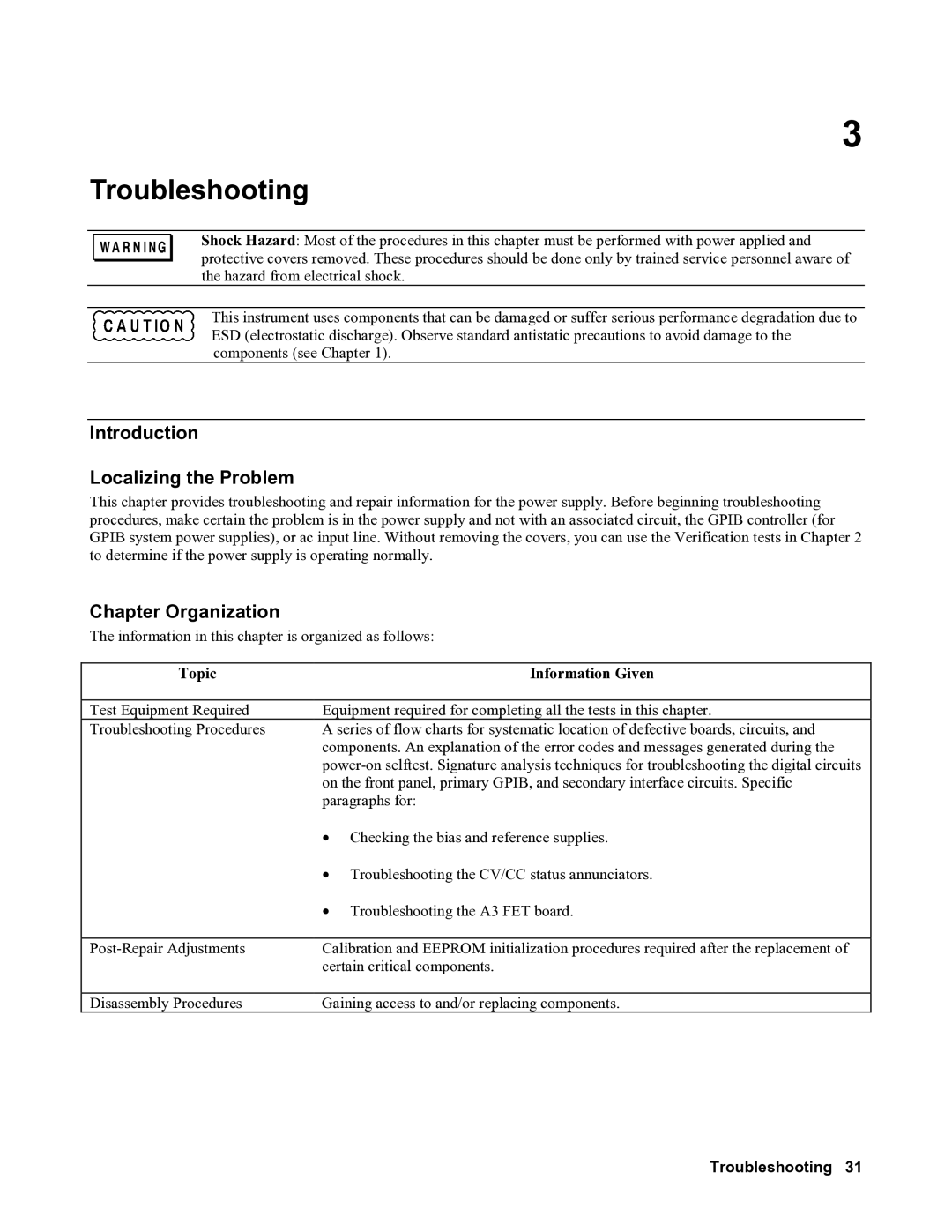
3
Troubleshooting
Shock Hazard: Most of the procedures in this chapter must be performed with power applied and protective covers removed. These procedures should be done only by trained service personnel aware of the hazard from electrical shock.
This instrument uses components that can be damaged or suffer serious performance degradation due to ESD (electrostatic discharge). Observe standard antistatic precautions to avoid damage to the components (see Chapter 1).
Introduction
Localizing the Problem
This chapter provides troubleshooting and repair information for the power supply. Before beginning troubleshooting procedures, make certain the problem is in the power supply and not with an associated circuit, the GPIB controller (for GPIB system power supplies), or ac input line. Without removing the covers, you can use the Verification tests in Chapter 2 to determine if the power supply is operating normally.
Chapter Organization
The information in this chapter is organized as follows:
Topic | Information Given |
|
|
Test Equipment Required | Equipment required for completing all the tests in this chapter. |
Troubleshooting Procedures | A series of flow charts for systematic location of defective boards, circuits, and |
| components. An explanation of the error codes and messages generated during the |
| |
| on the front panel, primary GPIB, and secondary interface circuits. Specific |
| paragraphs for: |
| • Checking the bias and reference supplies. |
| • Troubleshooting the CV/CC status annunciators. |
| • Troubleshooting the A3 FET board. |
|
|
Calibration and EEPROM initialization procedures required after the replacement of | |
| certain critical components. |
|
|
Disassembly Procedures | Gaining access to and/or replacing components. |
